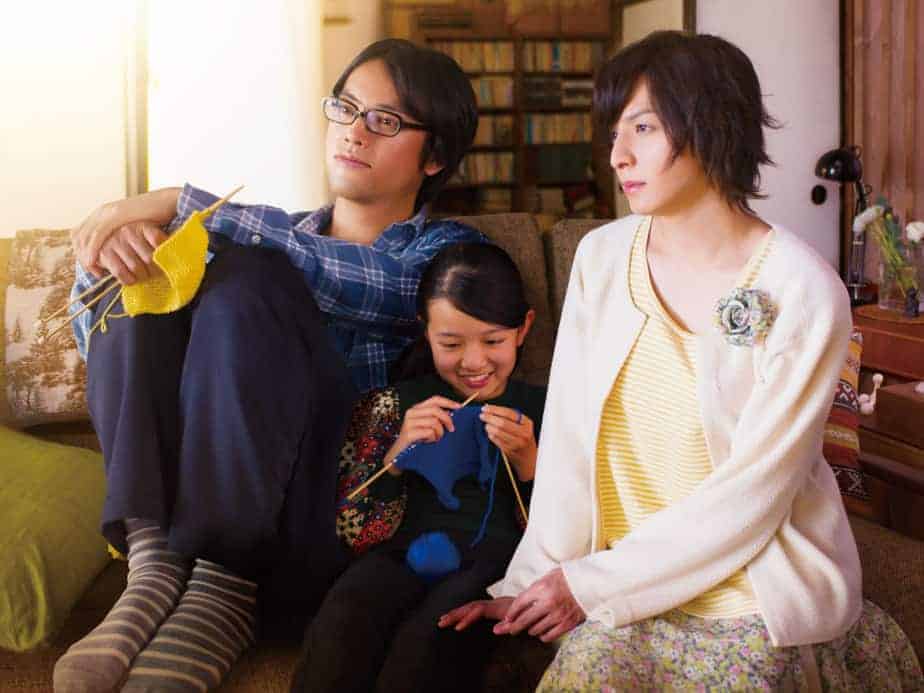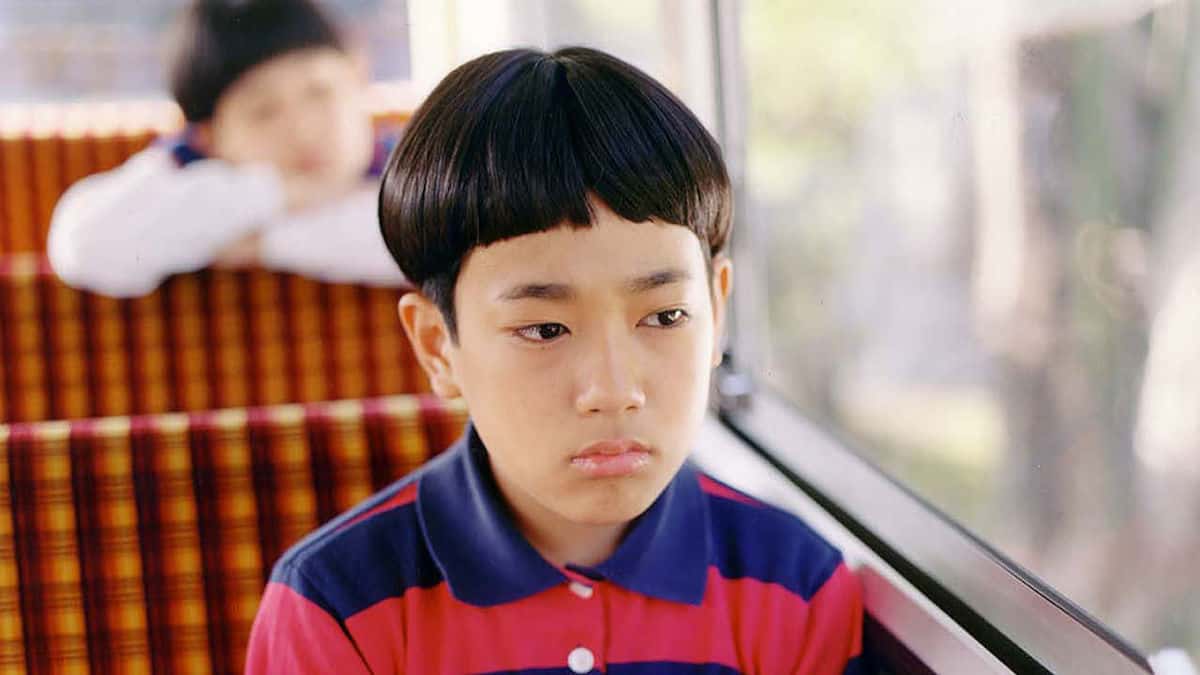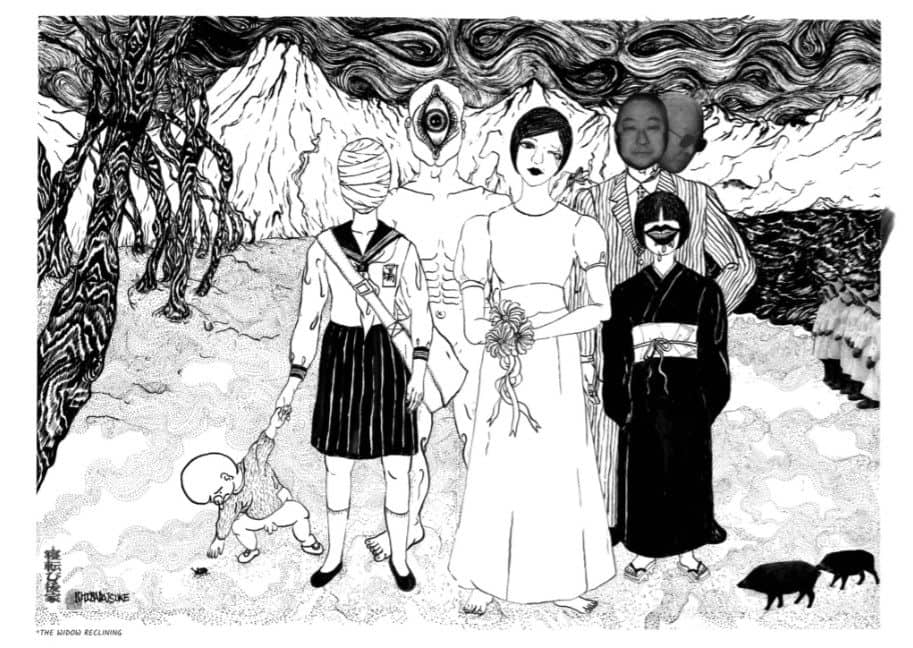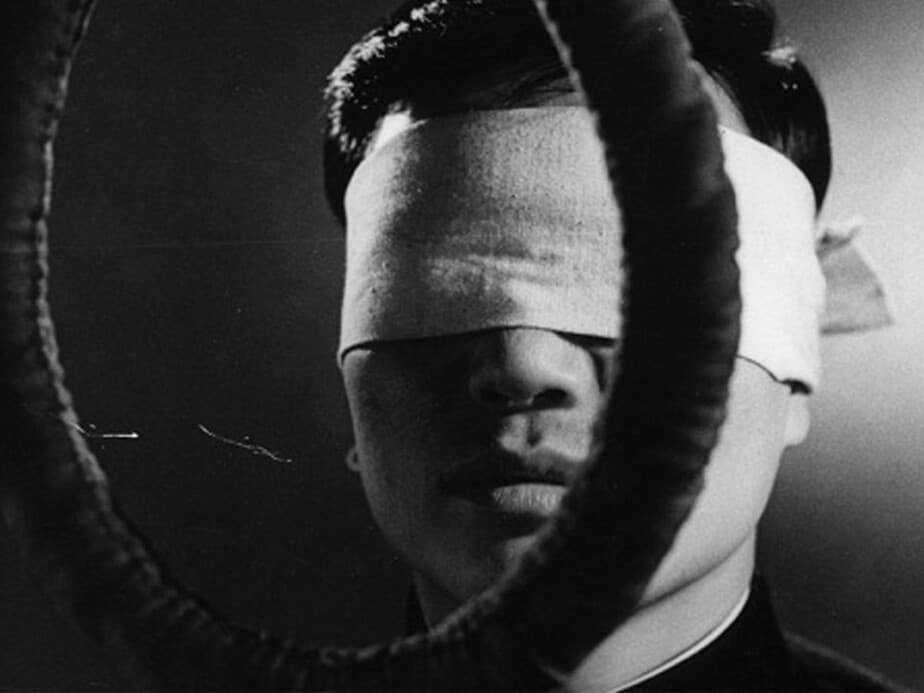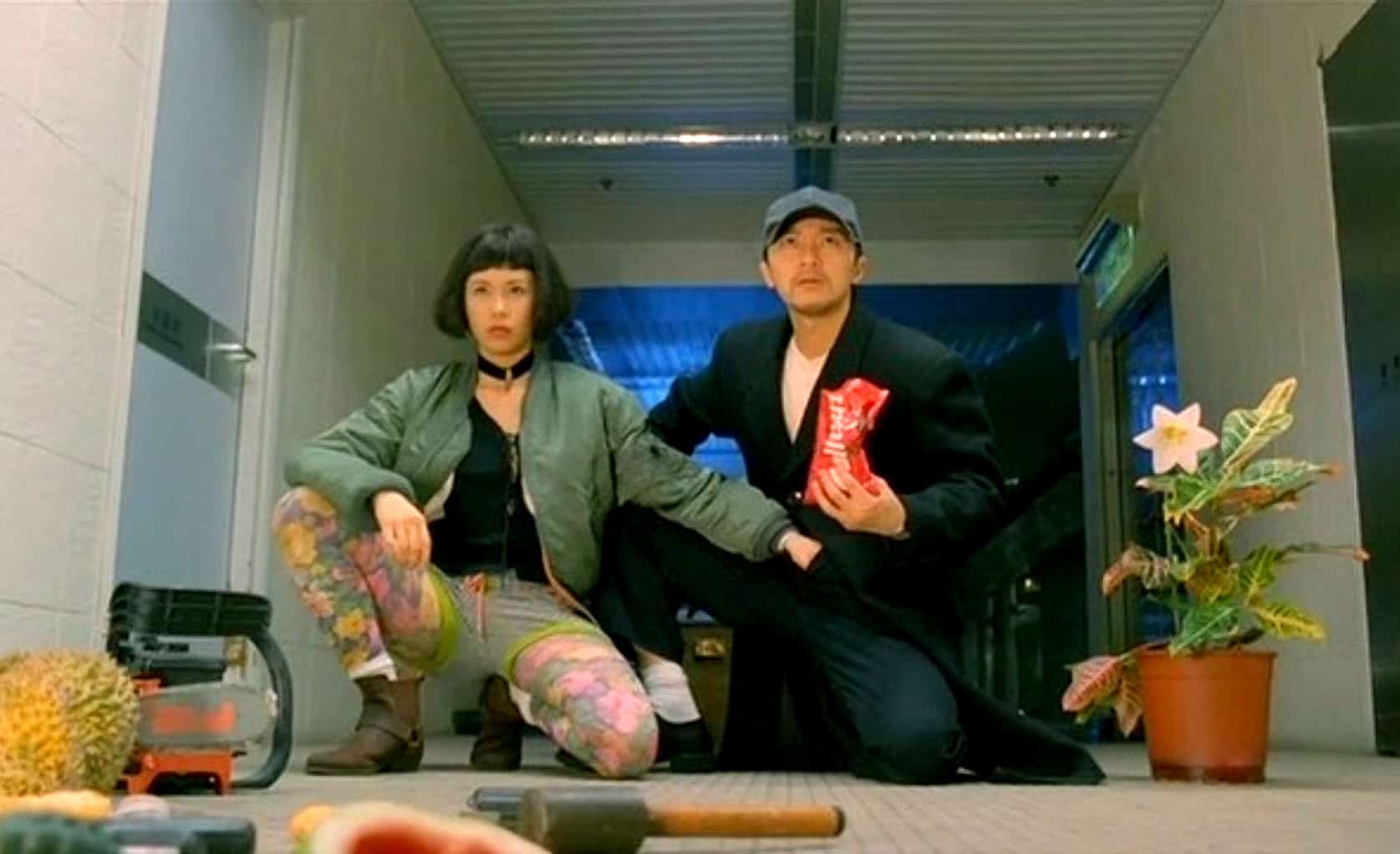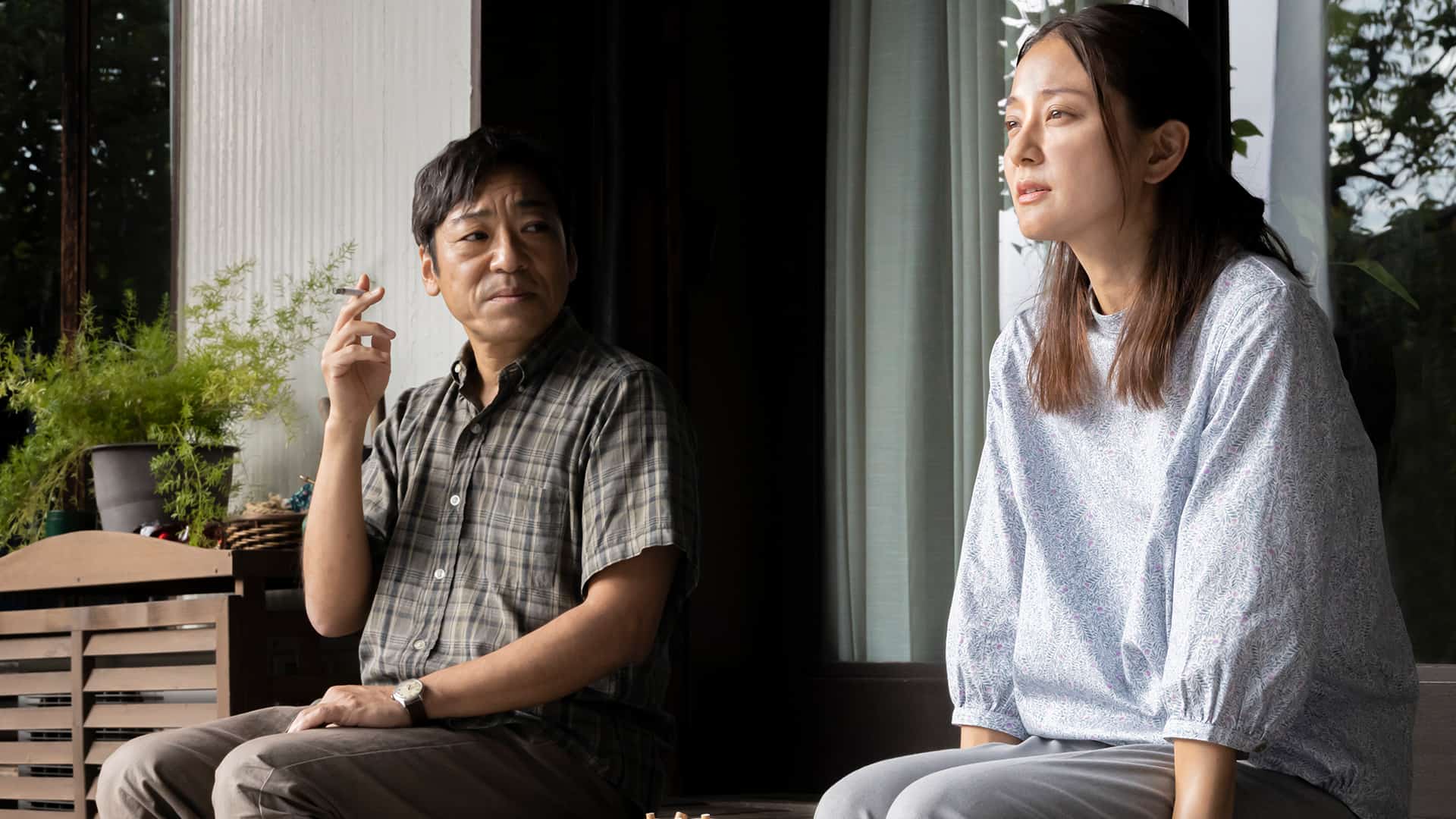Love, family, and relationships; our lives revolve around it, even for the most misanthropic of us. At the risk of sounding cheesy, no matter how much we fight with our family, no matter how estranged we become, we feel an urge for reconciliation. Movies about this subject are a hit and miss. They can become overly emotional while not showing the nuances of relationships. “Close-Knit” released in 2017, and directed by the talented director, Naoko Ogigami, pulls this off masterfully.
“Close-Knit” screened at the New York Asian Film Festival
The movie opens with a girl, Tomo (played by Rinka Kakihara) getting ready for school. The house is a mess. Clothes are strewn everywhere and the garbage bin is full. Tomo lives with her mother Hiromi (played by Mimura), who in the beginning of the movie, leaves her to pursue a life with a man. Tomo goes to live with her uncle, Makio (played by Kenta Kiritani). Tomo is surprised to learn that Makio is in a relationship with a woman, Rinko (played by Toma Ikuta). There's is a life of domestic bliss. Rinko not only keeps the house clean but is also an excellent cook. What surprises Tomo, even more, is that Rinko was born a man. Tomo initially is unsure about Rinko. She eventually wins her over since in her, Tomo finds a mother figure that she desperately needs. While this is happening, we are introduced to two characters, whose stories form a touching and relevant side plot. The first is of Kai (played by Kaito Komie), a boy who goes to the same school as Tomo. He is gay and confesses this to Tomo. He has a crush on a boy from school and even writes a letter to him. It is unfortunately found by his mother Naomi (played by Eiko Koike) and is torn to shreds. Her rejection of his sexual orientation breaks him inside and he commits suicide. The second is of a boy Rin. He wants to be a girl but in his case, he finds a supportive mother. She buys him bras and even makes him small breasts by stitching them from cloth.

There are multiple points of interest in “Close-Knit”. The first one is that of motherhood. Ogigami provides examples of different kinds of mothers. With Hiromi, we have a negligent mother, in Rinko we have the caring and doting mother, with Naomi we have the rigid mother, with Rin's mother, we again have a caring and understanding mother. It shows that mothers are humans too and it is not easy being a good one. Her viewpoints are greatly influenced by how she got treated by her own mother. This point is driven home in the scene where Tomo and Makio have a heart to heart discussion about their family. Makio talks about how their mother used to be harsh on Hiromi and this ended up pushing her away. During the end of the movie, Hiromi even confesses that she does not know how to be a mother.

The second point of interest is the LGBT community. We are all aware of the challenges they face. This movie does a great job in portraying this. Whether it be kids writing homo on the board or Kai's mother's rejection of his sexuality and her raising concerns about Tomo living with Rinko. She even sends the CPS to check on them. Tomo's eventual acceptance of Rinko is a beautiful example of how prejudices can be broken. Another scene of note is Rin wearing a bra and feeling happy. It becomes a symbol that, while physically he cannot be a girl right now, it makes him feel feminine. This leads to my third point. It is a girl hitting puberty. The changes are not just physical but mental as well. She has many questions about her body. This is shown in a touching way in this film. A particularly touching scene is of Tomo touching Rinko's breasts and resting her head on it. To an extent, the very first shot of the movie, of bras hanging from the clothes line, makes sense. In a way, it encapsulates the entire movie. The bra is not just a piece of clothing but also of transformation. The transformation into a woman.
“Close-Knit” from a technical perspective, is a well-made movie. Two scenes, in particular, come to mind. The first is of Makio, Rinko, and Tomo travelling on a bicycle to a picnic. The road is lined with cherry blossoms and they laugh as they mock race each other. The second scene is of the three of them sitting together and knitting. The acting is brilliant. Rinka Kakihara as Tomo and Toma Ikuta as Rinko deserve a special mention. Toma Ikuta has played a similar role before. Interestingly, Naoko Ogigami is famous for making movies which can be classified as “iyashi-kei eiga” or “films that provide emotional healing”. “Close-Knit” is an excellent representation of this.

It is always difficult to join different plot points together while making a film. This movie not only does this well but also is sure to leave the audience with a sense of hope. “Close-Knit” is a rare example where the plot, acting, and direction all come together to take the audience on a journey. A journey about life, relationship, and what it means to be a woman.


